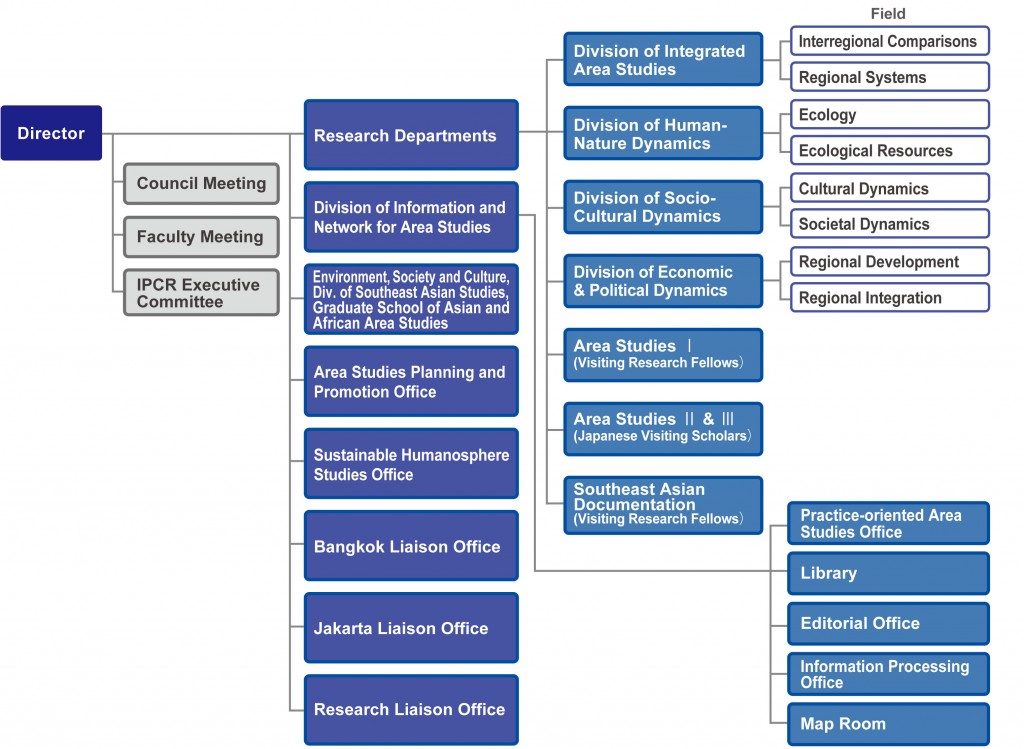
The core components of CSEAS are the Research Divisions of Integrated Area Studies, Human-Nature Dynamics, Socio-Cultural Dynamics, Economic and Political Dynamics, and Division of Information and Network for Area Studies. The mission of each research divisions is to promote Southeast Asian studies mainly based on natural sciences, humanities and social sciences, respectively.
Division of Integrated Area Studies
This division explores the age of information and globalization through synthetic and holistic approaches, and pursues comparative research on areas within and transcending the boundaries of Southeast Asia, as well as on regional information systems. In addition, the division integrates and coordinates the research of the Center in collaboration with the other research divisions and the Division of Area Informatics.
Division of Human-Nature Dynamics
This division explores the coexistence of humans and their environment. The Ecological Resources section pursues research on human ecology, environmental management systems, and resources, and the Life Environment section studies human life in relation to the environment, including studies of food, nutrition, hygiene and disease.
Division of Socio-Cultural Dynamics
This division explores the changing interactions of culture, society, and ecology through perspectives that challenge the disciplinary and geographic boundaries shaping past studies of Southeast Asia. It studies social transformations, cultural aspects of production, the creation of borderland spaces, and everyday life, as well as religion, knowledge practices, the institution of culture, and gender and sexuality.
Division of Economic and Political Dynamics
This division studies the political and economic dynamics of Southeast Asia in the context of globalization and regionalization. With the increasing importance of Asia as a politico-economic center, Southeast Asia has emerged as one of the key regions in Asia. The division aims to analyze fundamental transformations in arena of the political economy in Southeast Asia such as politico-economic regionalization, neo-liberal economic trend and its reactions, and democratization and decentralization.
Division of Information and Network for Area Studies
This division promotes Area Informatics as a new Area Studies, Practice-oriented Area Studies for social contribution and collaboration to Area Studies, provides various information resources, an information infrastructure based on the Internet, and a support system for highly utilized resources in Area Studies. This division consists of the department of Promoting Practice-oriented Area Studies, Library, Editorial Office, Information Processing Office, Map Resources Office.
Organizational Research Support
In addition to the above divisions, we also set up a division of domestic and foreign visiting fellows, oversea liaison offices in Bangkok and Jakarta, offices for promoting area studies, sustainable humanosphere studies, and action-oriented area studies in order to expand academic networks. We also contribute to graduate school education by managing a Laboratory of Integrated Area Studies in Division of Southeast Asian Studies, and to Graduate School of Asian and African Area Studies (ASAFAS). Research Liaison Office administratively supports all of these research and post-doctoral training programs.

